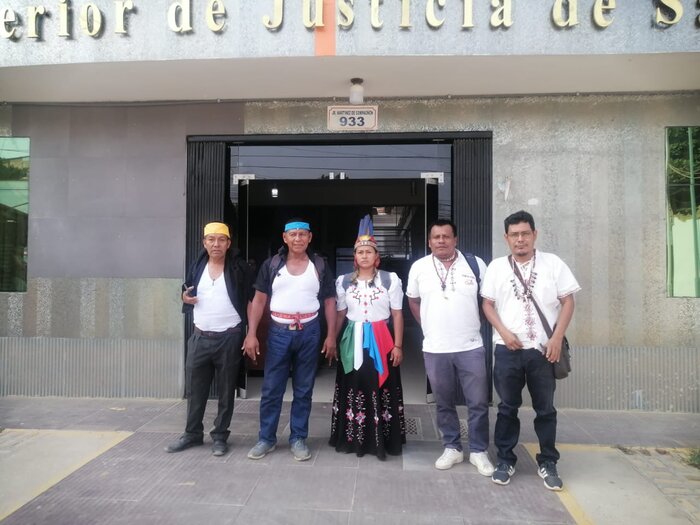
Peruvian Judiciary declares unconstitutional the lack of a national policy for titling Indigenous communities' territories in Peru

This article was originally published in Spanish on idl.org
Lima, 15 October 2025 - In an unprecedented court decision, the Peruvian judiciary has declared that the State's failure to approve and implement a national public policy for the titling of native communities' territories is an "unconstitutional state of affairs". This is the first ruling of its kind and represents a milestone in the struggle for legal security for Indigenous peoples, recognising that state inaction constitutes a systematic violation of their rights.
The ruling, issued by the Fourth Constitutional Court of Lima, is in response to the amparo petition filed by the Interethnic Association for the Development of the Peruvian Jungle (AIDESEP), the Coordinating Committee for the Development and Defence of the Indigenous Peoples of San Martín (CODEPISAM), the Ethnic Council of the Kichwa Peoples of Amazonia (CEPKA), and the Federation of Kichwa Peoples of Chazuta (FEPIKECHA).
Judge Guillermina Tello Diaz argues in her ruling that the lack of land titles is an open wound in the Amazon. Without land titles, communities are left in a state of defencelessness that opens the door to invasions by settlers, illegal loggers, drug traffickers, and other illicit economies. The ruling thus recognises that this territorial insecurity is one of the structural causes of the violence suffered by indigenous peoples and the murder of their leaders and defenders.
It should be recalled that, in this case, the entities sued were the Presidency of the Council of Ministers; the Ministry of Economy and Finance; the Ministry of Development, Agriculture and Irrigation; the Ministry of Culture; and the Regional Governments of San Martín, Loreto, Amazonas and Madre de Dios. In the ruling, the court underlines that, although the State's obligation to title communal lands has existed in law for almost 50 years, in practice this has not been fulfilled due to the lack of a clear, financed and determined policy. In this sense, the court decision describes as "alarming" the number of more than 600 native communities that are still waiting for their titles, a gap that, according to the ruling, impedes the prevention of social conflicts and violates the right to collective property.
The ruling also issues a key protection order for Indigenous Peoples in Voluntary Isolation and Initial Contact (referred to using the Spanish acronym PIACI). Based on the Forestry and Wildlife Law (Law 29763) and its regulations, the court reaffirms that the State is prohibited from granting concessions or any other enabling title in PIACI territories or in areas that are in the process of becoming indigenous reserves. This seeks to protect the last refuges of the Amazon's most vulnerable peoples.
Based on this, the ruling orders the Amazonian regional governments that, "in no case should they grant forest and wildlife titles in territorial reserves or in areas being processed for the establishment of indigenous reserves" for PIACI.
In sum, this ruling represents a crucial step in the defence of territorial rights in Peru. By declaring the State's inaction unconstitutional, the Judiciary acknowledges a historical debt, but also amplifies the voice of Indigenous organisations that have been fighting for decades to protect their territories.
Overview
- Resource Type:
- News
- Publication date:
- 20 October 2025
- Region:
- Peru
- Programmes:
- Legal Empowerment Access to Justice Law and Policy Reform
- Partners:
- Consejo Étnico de los Pueblos Kichwa de la Amazonia (CEPKA) Federación de Pueblos Indígenas Kechua Chazuta Amazonas (FEPIKECHA) Asociación Interétnica de Desarrollo de la Selva Peruana (AIDESEP) CODEPISAM
